A journey through time on two wheels ..

The question marks of the past
What do adults have to do on wheels? Why is cycling harmful to women’s health and why did a volcano have to erupt before the practicality of two-wheelers became apparent? These and many more astonishing questions have one thing in common: they are the content of the partly curious development history of our present-day bicycles.
And it went BOOM ..

A big bang in Indonesia did not bode well. The gigantic volcano Tambora spewed debris and ash kilometres into the sky. Its powerful eruption caused crop failures in Europe and North America, resulting in terrible famines. For example, oat prices also went through the roof – a knockout for the little man who eventually had to let his horses starve.
I’m sure you can imagine the headlines of the time and the hardship behind them. However, we have probably long since plunged too deep into the prosperity mudflats to really realise the hardship people once had to endure ..
Today, our society can flaunt 1900 horsepower – for example, in the Pininfarina Battista, as long as you shell out 2.2 million for the sports car – but it’s hard to imagine what it meant back then to lose your last steed, the only horsepower in the stable – and with this loss, the last means of locomotion and transport for the family.
Whoever still wants to win even in such a crisis may have earned a crown, and this is the one we put on Baron von Drais, who in the midst of hardship put his idea into practice and stuck to it ironclad despite particular challenges.
In 1817, he developed the Draisine, a running wheel that was primarily intended for men and was only suitable for paved roads. Since Mr. Drais mainly rode from his palace to the Schwetzingen Relay House on very pleasant routes, he was unaware of the lousy driving experience of his imitators, who presumably could only rarely reach Drais’ stated 15 kmh.
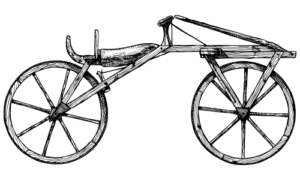
Drais’s licence marks on several handlebars were no longer worth anything, just like the trolley itself. There were simply no suitable tracks, and every user of a trolley quickly became a laughing stock when going uphill. Even the alternative of using the pavements was of little use to the average person, because that was where cyclists first came into conflict with pedestrians … Such problems ultimately put an end to Drais’ idea. Nevertheless, the newly invented two-wheeler had kindled an inner fire in a number of tinkerers who could not refrain from perfecting Drais’s invention, thus making it presentable and all-round practical.
Fortunately, Pierre Michaux joined the ranks of the indefatigable. He liked the Draisine; he recognised the potential of an ingenious idea that only lacked a few minor details, such as a pedal crank. And lo and behold, his commitment quickly bore fruit. And that in the form of a factory and pretty much 200 bicycles a year! With his sales, he made the simple two-wheeler significantly more popular. At the same time, Pierre Lallement equipped bicycles with pedal crank drives, which in retrospect makes it difficult to declare either of them the true inventor. Nevertheless, the two struggled with some problems that Drais also knew: Bad roads, which made a ride on the two-wheeler of the time akin to riding a washing machine in spin cycle.
Because of the Franco-German war in 1870, bicycle production initially came to a standstill with the collapse of the French economy. During this time, James Starley in England devoted himself to the development of the first penny-farthing bicycles, which incidentally included the invention of pedals on the front axle. A stroke of genius by the German Philipp Moritz Fischer. The result was the “Ariel” penny-farthing, whose front wheel was three times as big as the rear wheel. Imitators pushed the size of the front wheel to the extreme in order to reach their destination as quickly as possible with a vehicle weighing over 40 kilograms. Despite the dizzying height, these two-wheelers were even used for high-wheel championships. But don’t lose your balance!
We don’t need to mention how frequent and above all painful falls from these monstrous-looking two-wheelers were. Since the handlebars of a penny-farthing were very low and the cyclist’s centre of gravity was very unfavourable, the involuntary flights over the front wheel during abrupt braking manoeuvres often led to fatal falls, which is why the vehicle quickly earned the title “bone crusher”. Certainly not a shining moment in bicycle history … Nevertheless, the firm desire to get around on two wheels had already become so firmly anchored in some people’s minds that there was no turning back.
Persistent tinkerers stay on the ball
In 1880, the so-called safety bicycle would finally set the stage for the breakthrough of today’s bicycle. The “Rover” (1885) by John Kemp Starley, James Starley’s nephew, was even equipped with a whip that gentlemen on bicycles could use to chase away annoying dogs if a curious quadruped came too close.
At that time, some photos of people on lowered bicycles were taken – this time with smiling faces. Finally, people with a healthy sense of safety and a fear of heights could ride bicycles.
The only thing missing from the smaller bicycles with bicycle chains and ultimately the diamond frames still in use today were the tyres by John Dunlop, who made his contribution in the form of air-filled tyres in 1890. In 1900, freewheel hubs and coaster brakes were added, as well as the first light bulbs. From then on, not much was missing. When derailleur gears were invented in 1930, the two-wheeler was an almost perfect means of transport for its time. Nevertheless, there were still some ups and downs to be overcome..
Freedom for women!
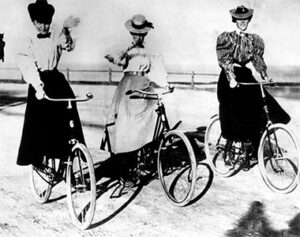
From now on, it became increasingly political, because the women’s world had also long since become enthusiastic about two-wheelers. However, the corsets and the men of creation made it difficult for them. At that time, women were only considered obedient if they kept their distance from bikes.
Not infrequently, ignorant husbands feared the newly discovered freedom of their wives, who could spontaneously escape all supervision with a two-wheeler. All of a sudden, they were no longer so often to be found at the cooker, but instead somewhere in the countryside on a picnic blanket – having a cosy chat with their girlfriends.
Cycling women did not fit in at all with the image of the little home on the cooker and in the washing tub, but the important step towards freedom was easy to fight for – too easy for the men to prevent. Finally, the constricting corsets were discarded and short skirts and bloomers worn instead.
Thanks to low rides, at least some manufacturers made it clear that they had nothing at all against women cycling, but rather wanted to support them, no matter what backward doctors warned against … Fortunately, women become neither infertile nor lecherous male vamps when they use bicycles. All the curious warnings of the “concerned” medical profession were crushed in no time at all.
Here it also becomes clear what influence the development of bicycles had on the fashion world. As early as 1900, it was Parisian chic for gentlemen to pull patterned stockings down to the back of their knees and to present themselves on their bicycles with breeches and caps. Practicality was combined with fashionable sophistication, breaking down old walls for gentlemen and soon for womankind as well, and the new creativity found favour.
The emancipation of the little man
At the same time as the emancipation of women, the workers’ movement was gaining momentum.
The little man, i.e. a hard-working and exploited creator, finally found a voice and, above all, an association that cared about his concerns. He could only afford second-hand and very basic bicycles, wealthy people looked down on him, but at least his life was made easier with better transport, which obviously also gave new impetus to his courage and commitment. The hope of bringing about fundamental improvements through like-minded people was born and strong enough to fight against powerful organisations and thus for justice despite adverse circumstances.

With the cyclists’ and motorists’ association “Solidarity”, those who had previously had no chance finally got a voice, even though their path was very rocky and in the end – at least in hindsight – the setbacks seemed more frequent than lasting successes. Although the federation initially presented itself as depoliticised, especially in comparison with the “Arbeiter-Radfahrer-Verein von Hamburg und Umgegend” (Workers’ Cyclists’ Association of Hamburg and the surrounding area), which was founded in 1893 and failed, a closer look revealed the links to the general workers’ movement. For example, flyers were sometimes distributed on the two-wheeler; a serious provocation to those in power.
The motives of the initiators of this association were above all to use the bicycle to defend themselves against political and social grievances, whereby the bicycle was supposed to serve as a balance to work and give strength for politicised resistance. The two-wheeler thus became the motivator of a “relatively reasonable rebellion” against industrial capitalist modes of production in order to finally improve the living conditions of the working class. However, because of unrest and strikes, the state leaders saw themselves under attack and vehemently opposed it.
At the time, ARB members also opposed road cycling. Instead of promoting high performance, they preferred competitions in “slow cycling” and saw cycling as a shared experience of physical fitness. The opposition to anti-democratic ideologies became increasingly apparent, which meant the end, which was ultimately decided by the National Socialists in 1933. Members as well as delegates were arrested or even killed.
The association, which once had 280,000 members, never managed to grow to this size again after the Second World War. But it was probably also due to the fact that some things improved by themselves … including those that had once been very close to the workers’ hearts.
The bicycle as a working tool
Already towards the end of the 19th century, the bicycle was discovered for more and more tasks that had previously been done by animals. After all, a two-wheeler doesn’t need food, doesn’t get sick or shy away from anything, and is never unruly or nervous.
Bicycles were converted into cargo bikes, which made milkmen, couriers, postmen, bakers and many traders happy. Even midwives could quickly get to home births this way.
Just imagine how early the first electric bicycles came onto the market, namely as early as 1895! Although these patented models still lacked pedals, true success was yet to come due to the overall high weight and short range. It was not until 2012 that the e-bike boom was triggered. In 2016, 2.8 million people were already taking advantage of the pedelec trend, which continues to grow today. Today in particular, e-bikes are used all the more, for example to enjoy their holiday time despite Corona, which is made easier than ever for every cyclist by means of sophisticated navigation systems. But the past is not over yet. So let’s jump back once again to the past of the early 20th century ..
At that time, only very few people could afford cars. It is true that cycling became temporarily more attractive after the Second World War had just been overcome, but ultimately more and more cars rolled into the middle class. The motorisation of society gradually displaced the bicycle.
In 1929, at least in some countries, rickshaws and pedicabs also appeared on the market, some of which were and still are equipped with electric motors. These practical means of transport are still popular in several parts of the world.
In the 1960s, the police also took to bicycles. In view of the economic growth and the prosperity that came with it, however, bicycles were predominantly regarded as backward, i.e. as a means to an end for the poor. However, it was only a matter of time before the right perspective on this would manifest itself ..
Just as bicycle courier services were experiencing a renaissance in the USA, general environmental awareness gradually began to take hold, driven primarily by the congested streets within large cities. Smog and space problems showed only a fraction of the negative extremes of industrialisation. But the awakening was slow in coming. It was too easy to exploit nature and people as usual in order to shovel as much of the profit as possible into one’s own pockets. To this day, we cyclists also sometimes fight against the ignorance of industrialists as well as even more highly respected politicians.
The birth of every cyclist’s rights

In 1979, Jan Ebbe founded the “Allgemeiner Deutscher Fahrradclub (ADF)” (General German Cycling Club) to stand by all cyclists. He succeeded in doing so, for example, by offering liability and legal liability insurance, and also by otherwise championing the extensive concerns of cyclists. At the same time, the European Cyclists’ Federation made life easier for cyclists. It organised conferences that bore fruit in opening more doors. Thus, the transport of two-wheelers on trains became possible and bicycle lanes were demarcated in cities – all innovations that found their rightful place in the StVo.
The decisions associated with these were early pioneers of changes that continue into our lives today. We are currently happy about the increasing road safety and cycling share of our environment. We are grateful for mobile breakdown services and subsidies.
The bicycle as a symbol of faith in a better future
Have too many given up already? This is what a passionate cyclist might ask himself when he leaves the traffic jam behind him after work. The fact is that there is hardly anything more harmful than indifference. It stands for the loss of passion, liveliness and wildness, ultimately for the neglect of one’s own humanity, because hardly anything seems more unnatural than to be indifferent and listless towards everything. What makes people merely say “Never mind!” to their environment and equally to their fellow human beings? After all, all the issues involved are by no means trivial, quite the opposite! Rather, we are surrounded by essential upheavals, sobering events and fateful decisions, and every active, helpful and human being wishes nothing more than that more people recognise their own power and possibilities – and finally use them! For their own sake and for the sake of the community.
Why we believe in the bicycle ..

Cycling is not just about getting from A to B in a refreshed state. Cycling means so much more. It is a symbol of an active, modern and above all prudent person who virtually detests the concept of “no matter” and so would like to activate fellow human beings to stand up for what is right. This also includes making sacrifices, being alert and actively involved in environmental protection and communicating to the outside world how valuable one’s own health is – which, by the way, should be a priority for every fellow human being.
A small report from Italy, for example, showed us that even old people over 70 have survived a corona infection, quite obviously BECAUSE they got on their bikes every day. Biking is a great way to breathe, the lung capacity is fully utilised. And should you actually contract a nasty lung virus one day, it gives everyone who is ill a certain good feeling of quiet security that they have the best prerequisites for surviving serious illnesses well. In addition to the condition of the lungs, the cardiovascular system is also crucial. So when we cycle, we do exactly the right thing without getting too close to others. We are convinced that cycling is and remains the perfect way to give your body another all-round health package with every tour you enjoy.
What are we actually fighting against?
The history of the bicycle has always been exciting and has contributed to positive developments, the fruits of which we enjoy today. Isn’t it time to see ourselves as part of a new historical development?
What are we fighting against today? Now and every day?
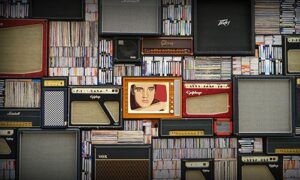
We have been consuming media mush for several decades. When we were little children, we waved back at the funny guy behind the screen, but today we usually sit paralysed in front of it, watching gruesome news, sometimes shocked or ashamed. But as soon as we press the off button, we are back in our perfect everyday bubble and are allowed to forget everything unpleasant and distant. Is this how we get used to compassion – and healthy activism? Is it possible that we are influenced by the media far more than we want to be – and without realising it?
In many films, gossip magazines, internet platforms and soaps, we look at the lives of others, perhaps considering them more interesting. In the end, we neglect our own. So we become indifferent puppets, stuffing ourselves with mirages and yet never really getting full.
If you look behind the scenes in the lives of celebrities, you are actually very shocked at the abysses that open up. So why do we cling to facades when our own lives are so rich and wonderful to experience? Exactly: Not can be, but IS!
Never forget who and what we are capable of
You and I, we and they … Rising up means an effort. First comes reflection, then a decision – and then action. This sequence makes one thing clear above all: it starts with thinking, so it can never matter what we feed our minds with. It can never matter what we let ourselves be influenced by.
At the beginning of the history of the bicycle were simple people without television, mobile phones and sensory overload. That may be what makes their focus different from ours: They had their own visions, big goals, they wanted to make a difference because they trusted in their own strengths – and that’s what we want too!
We are in a position, each and every one of us, to directly do something for environmental protection and our health. Let’s not leave the right thing to mirages or perfected, slick fantasy characters on TV, or even hyped individuals bragging about how much of their excess they can give away. We can make history ourselves by cycling away from Corona and drawing attention to our ability to find a pearl in every crisis. Because – if anything – crises are there precisely for that purpose: they make us realise what really matters and how quickly everything we take for granted can be lost in no time at all if we don’t pay attention.
The division in society these days is frightening. There is one overriding opinion regarding Corona. In fact, any argument to the contrary may only be voiced inaudibly, yet every issue has many sides. We hope that discrediting will stop and different opinions can be discussed peacefully again. We miss the fair exchange and tolerance. Perhaps because so many people shy away from the effort of informing themselves extensively and instead prefer to swallow what they have already chewed?
Indifference means lethargic perseverance under a soundproof bell, but we want to be cyclists! Cycling and actively into a hopefully better future! We want to be seen defying comfort and also rusting in old age. We want to show how wonderful one’s own life can be when one detaches oneself from EGAL and is allowed to belong to those who have survived Corona fit and “still cheerful”. So let’s make history!
Have you treated yourself to a bike this year? Then you belong directly to the 2020 cycling boom with your influence!
Today in view of Corona – 2020 is going, 2021 is coming ..
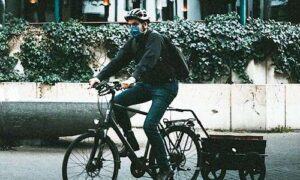
Far too popular to let go, that’s how cycling is today. And it seems as if a gigantic upheaval is currently taking place. In the bicycle industry, Corona has triggered an unprecedented demand. One might suspect that it would take forcing some people to stay indoors to make them understand how good it is to spend as much time as possible in nature.
In fact, the masses are suddenly flocking outside, taking advantage of walks through nearby forests – and it is especially affecting those who were hardly ever found outside before.
And what about the unprecedented bicycle boom? Are more and more actually getting a taste for it thanks to Corona?
If you’re on a budget, the solution can be so simple: a bicycle doesn’t cost any petrol and can even help with the weekly shopping by means of a trailer or transport bags.
Perhaps the pandemic reminds us of how well we used to do, back when everything was taken for granted: going shopping, pushing through the crowds or just sitting down somewhere for a coffee or a tasty lunch.
The prolonged situation makes it clear to us that we now need different things more than we did a year ago: more time to breathe deeply, to clear our heads, to tear the ceiling off our heads and look into the distance, to let the wind blow around our ears. We need this now, because we are annoyed and stressed, perhaps afraid – for ourselves or our loved ones.
Please don’t forget your own needs in the face of the pandemic!
How was it – back then when women finally broke out and discovered their own needs, detached themselves from the cooker and dirty laundry, back then when workers also realised that their lives only meant something if they also thought about themselves ..
We can reflect on ourselves and our lives right now. Let’s use the deceleration to change our ways. Are we really happy, or is it high time to change something? If that is the case, we should start working on the change now: Maybe more time for the family – then let’s take the necessary steps today!
Because what has Corona taught us: There is a time to act, and it is always, but best immediately! Sometimes life is over faster than you could ever imagine. Let us take care of our loved ones and our well-being. That’s where our passion and our strength should go, at least most of it. If we stand on solid ground, i.e. keep the really important things healthy, we will also have enough energy for everything else.
Perhaps we also have Corona to thank for a new openness..
… for example in dealing with taboos?
Never before has so much private information been spread within the social platforms. Open letters to the government and videos of desperate small entrepreneurs were among them. It seemed the community became an extended family. Everyone was allowed to know everything. Finally, one was allowed to show weakness and found encouragement from all corners.
“Maybe,” it was put out there, “you need professional help? That’s okay.” Because, according to the statistics and published reports, this was also increasingly being used.
Corona leaves many lonely and presents some with challenges they find hard to cope with. In addition, there are reports of horror as well as individual fates that move to tears and leave traces. So it is not surprising that hopelessness stands before you like a mountain, after all, quite a few are facing financial ruin.
No one will claim at this point that such fates are easy to cope with. Sometimes it can only be better to admit to being stuck in a dead end. Maybe everything has become too much for us and we are longing for the finger to point to new approaches. Psychologists can really help. Let’s not allow the crisis to drag us into a bottomless pit, but let’s counter pandemic fatigue, if necessary, with experts who can show us new paths.
In everyday life, electronic helpers can also brighten up some dreary winter hours. How about video chats with friends, maybe even over coffee and cake? Some people indulge in board games with their friends via Zoom or invite people to get together in a large group – including a few performances by young and old. In fact, there is nothing that doesn’t exist! So let’s take advantage of the opportunities that are available. Old-fashioned correspondence, cosy phone calls, good books, films or simply a dreamy look out of the window with a warming cup in our hands can also help. Let’s treat ourselves to cosy jumpers, baggy trousers, thermal socks and chocolate, especially in the wintertime! Let’s fill our minds with stories and films that make us laugh or captivate us with their suspense.
Our children, our future

What do our little ones see in this pandemic? Stressed-out or hopeless parents in the home office? How individual families deal with crises is completely different. In spring 2020, the media increasingly reported on domestic violence. What helps when chaos reigns at home and Corona tears out of the familiar routine? A look outside!
Is it too much to ask for us and our children to get on a bike and cycle a few kilometres through the countryside? Or how about a walk – perhaps a night hike with torches followed by mulled wine and children’s punch?
Nature can work wonders!
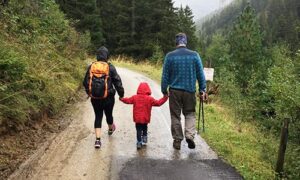
In the pandemic, let’s strengthen our children’s appreciation of our environment so that they can develop a deep desire to preserve it. Let’s show them how happy our old neighbour is when we put a basket of food down for her. In this way, our offspring will grow into a thoughtful and helpful person who will think of others during future exceptional situations instead of rebelling and protesting against everything that does not seem comfortable enough at the moment. Corona gives us opportunities and precious moments if we use this special time wisely!
At MHW ..
… employ mothers, fathers, young trainees and singles. And we are aware of the challenges we are facing at the moment, which we will not close our eyes to. Defying the bicycle boom in the home office is truly no easy task, but in the end you can do anything with cohesion.
Understanding may sometimes be lacking – at least that’s what we experience more often from the outside. But who takes the trouble to show real understanding or even deep interest? There could well be more.
In the early stages of the lockdown, the assembly lines of even well-known manufacturers were at a standstill. An upheaval was underway that demanded new strategies and a reorganised structure. But how quickly is a large or even small company able to adapt, especially when the conditions do not allow for some things. We, too, were faced with unprecedented conditions and had to find solutions quickly, even though our company structure was designed for completely different circumstances.
The delivery dates of ordered bicycles were postponed by the manufacturers, and postponed again … Since the joy of a new bicycle of every customer is very dear to us, we were hit particularly hard by negative reviews – although we have to assume that we were not infrequently hit by a huge frustration about the pandemic situation itself.
You can take our word for it, dear readers: we have fought tirelessly and will continue to do our best to satisfy every MHW customer. Our teams in assembly, on the executive and consultant floor, in administration, in sales, in the warehouse, in marketing, in shipping … they all continue to give their best for you, no matter what may come!
Doing without – just lousy?
We part with a large portion of what we take for granted and the pleasures that go with it, … with freedoms, sociability and our mood for celebration, simply because we have no other choice. It is perhaps thought-provoking how obedient most people are in accepting new restrictions and interventions in their private lives, when the comprehensibility is occasionally unclear. Just a moment ..
How did it all begin? Maybe we still remember Wuhan and the hospital that was built in no time at all, and the chaos there. Maybe we remember the first impression: bad, yes, by all means, but a story from “far away”.
How long did we wallow in safety before the flood of viruses also swept into our country? Suddenly it was there, the change that affected our lives for months and will occupy us for a long time to come. Now we are affected, we directly.
We face anger, incomprehension, but also great sorrow and tears. But even in this we recognise a certain value. Because now that from “far away” is very close and opens our eyes.
We hope that this will make us feel even more addressed in the future when we hear about the fates at the other end of the world, when we see refugees struggling to survive at sea. Maybe some people will finally lose the worry that strangers could rob them of some of their wealth – just by the fact that they are now also walking around in Germany.
Maybe people will become more active again because of Corona and find ways and means to help disadvantaged people.
We at MHW still remember ..
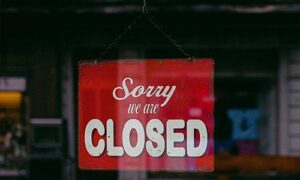
In the beginning, we could not guess where the epidemic would take us. Customers were unsettled and waited to buy bicycles. The lockdown was like a ban on everything. Then, when it became clear that nothing stood in the way of cycling, things got underway. The season started late, but was all the more intense for it. Holidays abroad were no longer possible, we were told to keep our distance. Only outdoors could we enjoy the limited togetherness without a mask. Cycling was to fill new gaps and bring the joy that had been taken from us elsewhere. This started an unprecedented boom that will probably continue in the coming year. For now, Corona remains our shadow.
Take your time!
Generally speaking, the human psyche always goes through four phases during a crisis: Anger, denial, the acceptance of the situation and finally the departure for new shores. Accepting what has happened is an essential step in order to eventually move on, liberated and hopefully with new courage. It is essential to give each phase enough time and to process it sufficiently. Only then is a strong new start possible!
The quarrelling between Corona deniers and all the others also makes it clear that the broad masses are probably afraid of being lied to. Have we really lost the truth?
Our immediate environment is first and foremost what counts and what really shapes us. Corona seems to function like a magnifying glass, so let’s take it in our hands and just take a closer look. We may discover our happiness or contentment in the crisis. Or gratitude. Then Corona has become a shell inside which we have discovered a pearl that will never lose its value.
We believe that one day we will be allowed to forget again all that happened in 2020. The images of the news will fade and be filled by others. We will again embrace, celebrate and go shopping as we please, but please do not forget that others do not even dare to dream of our prosperity. There are still children starving and people drowning at sea. In view of the real problems, how easy is it to put on a mask and show consideration, to simply cut back severely for a year when we know that one day things will return to normal? Our missing normality is pure luxury!
We are doing damn well – despite Corona!
Let’s protect our loved ones and ourselves, let’s hold out a little longer, and if necessary longer than we actually want to. Let’s use our opportunities for mental balance. This is not about us, it is about far more.
History continues to fill in – and we are writing along with it. In this spirit, the MHW team wishes you health and happiness, as well as a hopeful approach to the crisis.
We are thinking of you and are looking forward to what is to come, full of confidence that we will best survive this crisis with a lot of cohesion ..












Recent Comments